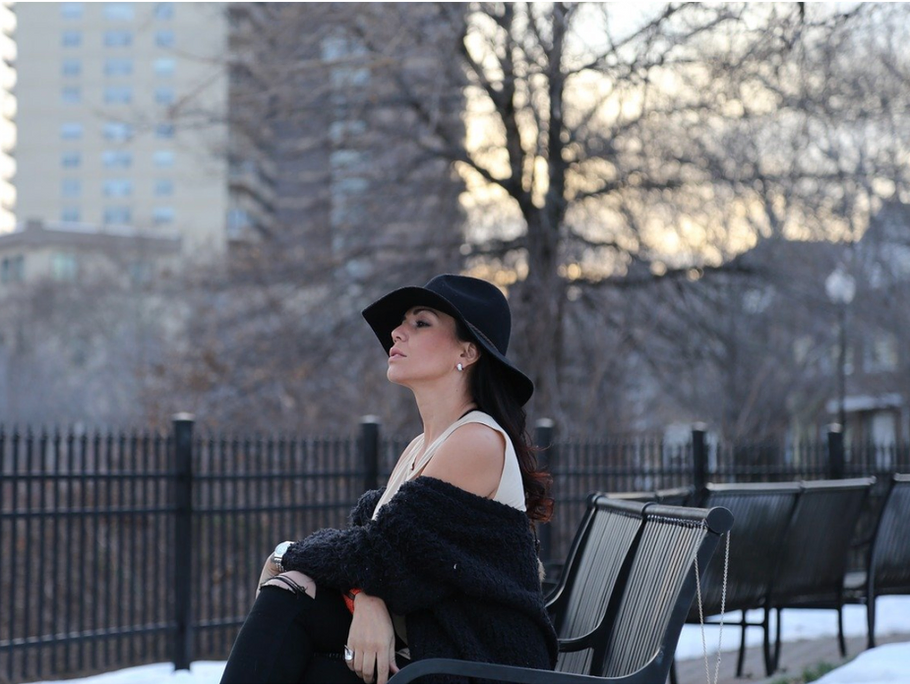Obsessive-Compulsive Disorder (OCD) is an anxiety disorder that occurs when a person gets caught in a cycle of unwanted and intrusive thoughts. These thoughts trigger distressing feelings and cause the person to feel driven to engage in repetitive behavior, compulsions.
Read Maya’s story below to learn about her journey with self-discovery and how she is not only coping with the disease but fighting back.

“You already asked that question. The answer hasn’t changed,” my mom patiently explained to me on many occasions throughout my childhood. I now can recognize my repetitive questions as an early symptom of my obsessive-compulsive disorder—reassurance-seeking.
My OCD Symptoms
I experienced several irrational fears as a child, like the fears of flying, losing baby teeth, and skeletons. In elementary school, I began worrying about my family and me getting hurt, and I would compulsively pray each night to prevent bad things from happening. In middle school, social anxiety crept into my life, and I started to withdraw from friends and deny invitations to social events. I also began to experience some school perfectionism obsessions and compulsions.
Thankfully these events were a small part of my otherwise great childhood. I was so fortunate to have amazing parents, a little sister whom I regarded as my built-in best friend, a roof over my head, and food on the table. Unfortunately, mental illness didn’t care.
MY OCD Diagnosis
The summer before my freshman year of high school, my OCD symptoms quickly intensified. My prayer rituals at night were over an hour-long because I had to repeat them until they felt “just right.” I was constantly afraid that I was sinning and that I’d go to hell if I didn’t constantly pray for forgiveness.
For the first time contamination obsessions entered my head; my showers grew longer and hand washes more frequent each day until my hands were raw. I was so frightened and didn’t know what was wrong with me, so one day I decided to consult the internet for answers. I stumbled upon an article about OCD, and suddenly my strange thoughts and behaviors had a name. Hating the way I was living, I took a few days that August to perfect a letter to my parents explaining my situation and asking for help.
My pediatrician directed me to a talk therapist, who didn’t help. My symptoms actually worsened, and I developed counting and checking compulsions and obsessions with “good” and “bad” colors and numbers.
The talk therapist referred me to a cognitive-behavioral therapy (CBT) research study at a nearby university through which I got free CBT and exposure and response prevention therapy (ERP), the golden-standard OCD treatment, weekly. Unfortunately, I was too deep into the throes of OCD that weekly appointments didn’t make much of a difference. I did learn a lot about the process of OCD treatment, however, and hesitantly began medication at their suggestion.
I was then referred to a local CBT therapist, with whom I made a little progress with weekly sessions, however, new symptoms quickly appeared once I conquered old ones. I was truly miserable staying up until the morning hours and waking up before dawn to do compulsions. My Dermatillomania, an obsessive-compulsive spectrum skin-picking disorder, worsened, and I was constantly ripping apart my own skin.
Treating My OCD
At age 16, I made the decision to check myself into residential OCD treatment hundreds of miles away from home. It was the scariest yet best decision I have ever made in my life. Those three months were full of exposures, group therapy, experiential therapy, and new friends who understood me. Before then I hadn’t met anyone else with OCD, and I no longer felt so alone. There (after five tries) I finally found the medication that works best for me.
The residential treatment turned my life around for the better and jump-started my recovery, and my OCD and anxiety are so much more manageable now.
I am nowhere near cured, however. For the past two years, I have been seeing an amazing therapist about twice a week with whom I share a great bond. She does a great combination of ERP, CBT, talk therapy, and a little dialectical-behavioral therapy (DBT) with me. I’m still on medication. I still struggle, especially with contamination OCD, social anxiety, and intrusive thoughts. But I now have the tools and resources to fight back against OCD and try my best not to let it take hold of me.
I am about to finish my first semester in college. Three years ago, I never thought that I’d be able to go to college. Attending college has definitely been a great source of anxiety for me, but with the amazing support from my family and therapist, I am pushing through. It takes time and hard work, but there is always hope.
